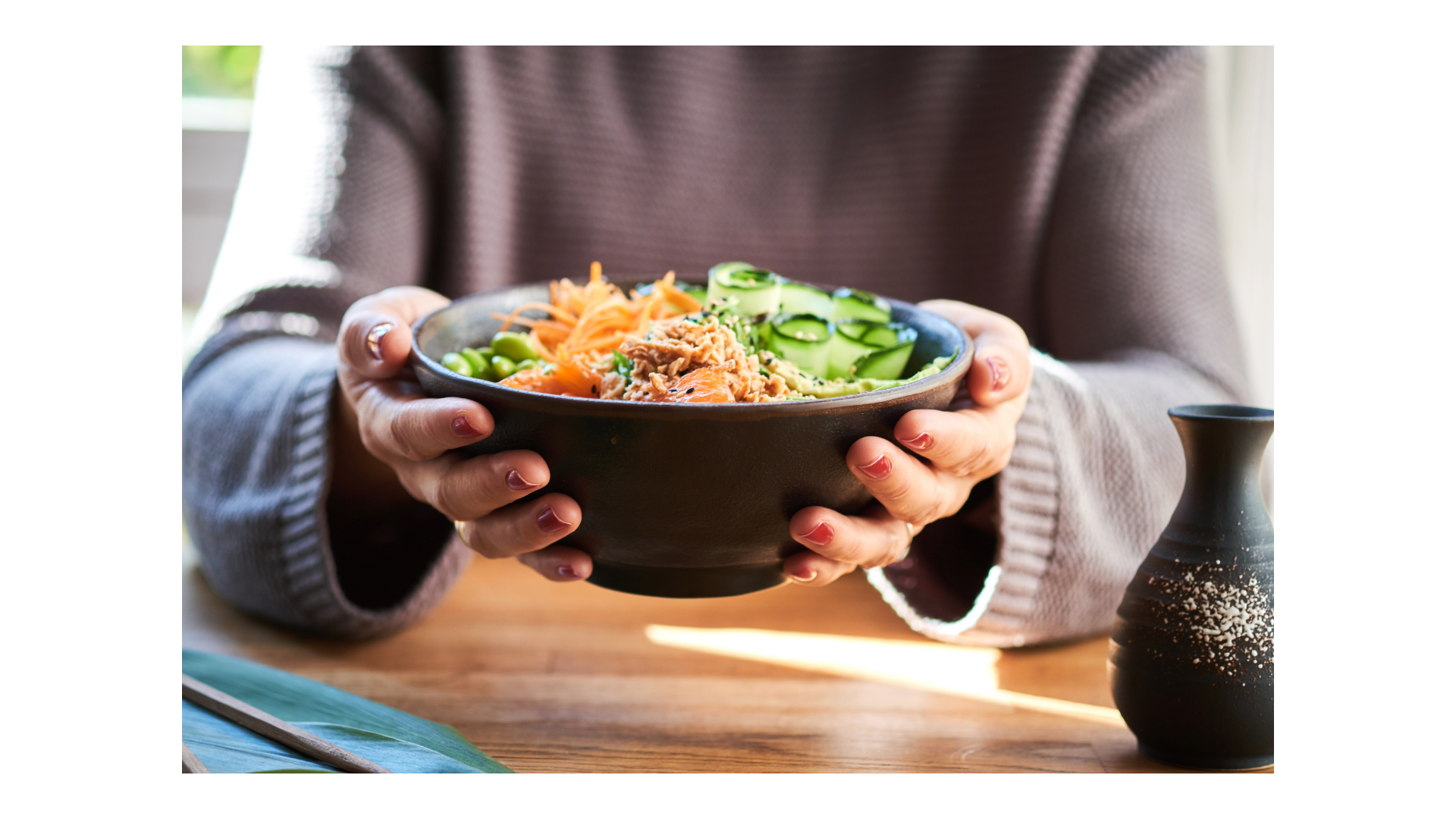Introduction
Menopause marks a significant transition in a woman’s life, bringing hormonal changes that can lead to a range of physical and emotional symptoms. One common challenge is weight gain, often accompanied by shifts in how and where fat is stored in the body. While this can feel frustrating, understanding the connection between menopause, nutrition, and lifestyle can empower you to manage your weight and feel your best. In this blog, we’ll explore how menopause affects weight, offer nutritional advice focusing on phytoestrogens like flaxseed, Shan Yao (Chinese yam), and soy, and provide meal plans and exercise suggestions to support a healthy transition.
How Menopause Affects Weight
During menopause, estrogen and progesterone levels decline, which impacts the body in several ways:
- Slower Metabolism: A natural decrease in muscle mass and resting metabolic rate can make weight gain more likely. A study published in the American Journal of Physiology-Endocrinology and Metabolism investigated the impact of menopausal status on fat oxidation and energy expenditure during exercise. The researchers found that postmenopausal women had a 33% lower rate of whole-body fat oxidation and a 19% reduction in energy expenditure during exercise compared to premenopausal women
- Redistribution of Fat: Estrogen helps regulate fat distribution. With its decline, fat tends to accumulate around the abdomen instead of the hips and thighs. A meta-analysis published in the American Journal of Obstetrics and Gynecology examined how fat mass differs between premenopausal and postmenopausal women, considering the moderating effects of age and menopausal status.
- Increased Appetite and Cravings: Hormonal changes can alter hunger hormones like leptin and ghrelin, increasing appetite and cravings for high-calorie foods. A study published in the Journal of Clinical Endocrinology & Metabolism investigated the effects of menopause on these hormones and found that postmenopausal women had higher levels of ghrelin, the "hunger hormone," and lower levels of leptin, the "satiety hormone," compared to premenopausal women. These hormonal changes can result in increased hunger and a higher likelihood of overeating during the menopausal transition.
- Insulin Resistance: Menopause can make the body less efficient at using insulin, leading to higher blood sugar levels and increased fat storage. A comprehensive meta-analysis presented at the 2024 Annual Meeting of The Menopause Society examined 17 randomized controlled trials involving over 29,000 participants. The analysis revealed that hormone therapy (HT) significantly reduced insulin resistance in healthy postmenopausal women without metabolic diseases.
RELATED: Is estrogen supplementation safe for estrogen-positive breast cancer?
Nutritional Advice for Menopause and Weight Management
Including phytoestrogen-rich foods in your diet can help balance hormones naturally while providing essential nutrients for weight management:
-
Flaxseeds: A top source of lignans, phytoestrogens that mimic estrogen in the body, flaxseeds also provide fiber to support digestion and reduce cravings. Aim for 1-2 tablespoons of ground flaxseeds daily.
-
Shan Yao (Chinese Yam): Rich in diosgenin, a natural phytoestrogen, Shan Yao helps balance hormones and supports energy levels. Consume 100-200 grams (3.5 to 7 ounces) of fresh yam as part of a meal.
-
Soy Products: Soybeans, tofu, and tempeh are excellent sources of isoflavones, another type of phytoestrogen. Include a serving of soy products (about ½ cup) 3-4 times a week for hormonal support.
-
Leafy Greens: Foods like spinach, kale, and broccoli are high in calcium, magnesium, and antioxidants, supporting bone health and reducing inflammation.
-
Berries and Apples: These fruits are rich in phytoestrogens and antioxidants, supporting cardiovascular health and providing natural sweetness without a sugar spike.
RELATED: Phytoestrogen Herbs
A Week of Menopause-Friendly Meals
Day 1
- Breakfast: Oatmeal topped with 1 tablespoon of ground flaxseeds, fresh berries, and almond milk.
- Lunch: Spinach and tofu salad with sesame dressing, quinoa, and steamed broccoli.
- Dinner: Grilled salmon, roasted Shan Yao (Chinese yam), and steamed asparagus.
Day 2
- Breakfast: Smoothie with soy milk, 1 banana, 1 tablespoon flaxseed, and a handful of spinach.
- Lunch: Lentil soup with whole-grain bread and a side of mixed greens with olive oil.
- Dinner: Stir-fried tofu with Shan Yao, bell peppers, and brown rice.
Day 3
- Breakfast: Avocado toast on whole-grain bread with a sprinkle of sesame seeds and a side of apple slices.
- Lunch: Chickpea and vegetable stew with a side of quinoa.
- Dinner: Baked chicken breast, roasted Brussels sprouts, and mashed sweet potatoes.
Day 4
- Breakfast: Greek yogurt (unsweetened) with flaxseeds, blueberries, and walnuts.
- Lunch: Asian-style tofu salad with edamame, shredded carrots, and miso dressing.
- Dinner: Grilled shrimp with Shan Yao and sautéed spinach.
Day 5
- Breakfast: Smoothie with soy protein powder, frozen berries, Shan Yao powder, and almond milk.
- Lunch: Whole-grain wrap filled with hummus, avocado, spinach, and roasted vegetables.
- Dinner: Stir-fried beef with broccoli, garlic, and Shan Yao over cauliflower rice.
Day 6
- Breakfast: Scrambled eggs with spinach and a slice of whole-grain toast.
- Lunch: Tofu and vegetable curry with brown rice.
- Dinner: Grilled salmon, Shan Yao wedges, and roasted zucchini.
Day 7
- Breakfast: Oatmeal with soy milk, a tablespoon of flaxseeds, and sliced almonds.
- Lunch: Asian noodle salad with tofu, sesame seeds, and shredded cabbage.
- Dinner: Roasted chicken thighs, Shan Yao, and steamed green beans.
Related: Are herbs better than Hormone Replacement Therapy?
Simple Exercise Suggestions for Menopause and Weight Loss
- Strength Training: Aim for 2-3 sessions per week. Strength training helps preserve muscle mass and boosts metabolism, both critical for weight loss during menopause.
- Cardio Workouts: Incorporate 30 minutes of brisk walking, cycling, or swimming most days of the week to improve cardiovascular health and burn calories.
- Yoga or Pilates: Practice yoga or Pilates 2-3 times weekly to improve flexibility, reduce stress, and support mental health.
- High-Intensity Interval Training (HIIT): Try a 20-minute HIIT workout 2-3 times a week for an effective calorie burn and metabolism boost.
Supporting Hormonal Balance with Herbs
In addition to phytoestrogen-rich foods, consider incorporating these herbs into your routine:
- Shan Yao (Chinese Yam): Supports hormone balance and improves digestion.
- Shu Di Huang: Rich in phytoestrogens and a common herbs in most menopausal relief formulas.
- Dang Gui: Helps with mood swings and energy levels (consult with your healthcare provider before use if you have a hormone-sensitive condition).
Related: Best Herbs for General Weight loss
Conclusion
Managing weight during menopause doesn’t have to be overwhelming. By incorporating phytoestrogen-rich foods like flaxseed, Shan Yao, and soy into your diet and adopting a consistent exercise routine, you can support hormonal balance and maintain a healthy weight. Use this meal plan as a starting point and tailor it to your tastes and needs. Combined with herbal support and a mindful approach to fitness, you’ll be on your way to feeling your best during this transition.

Dr. Kyle Burton, DAOM, LAC, NCCAOM
Herbal Telehealth Appointments: Schedule Here
Acupuncture & Herbs





